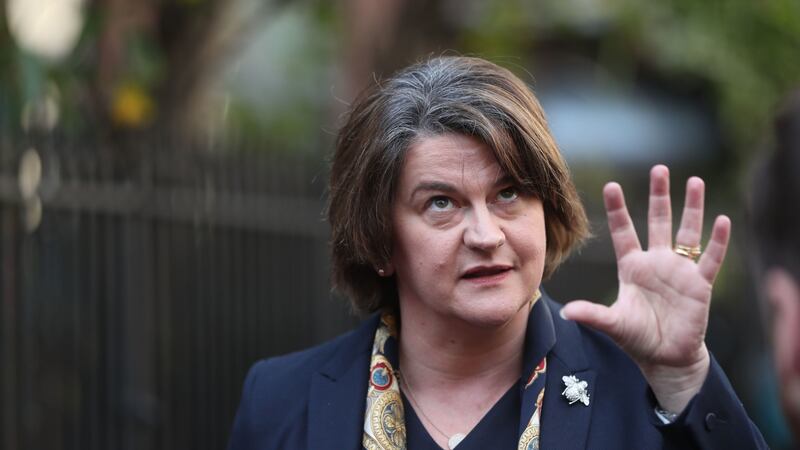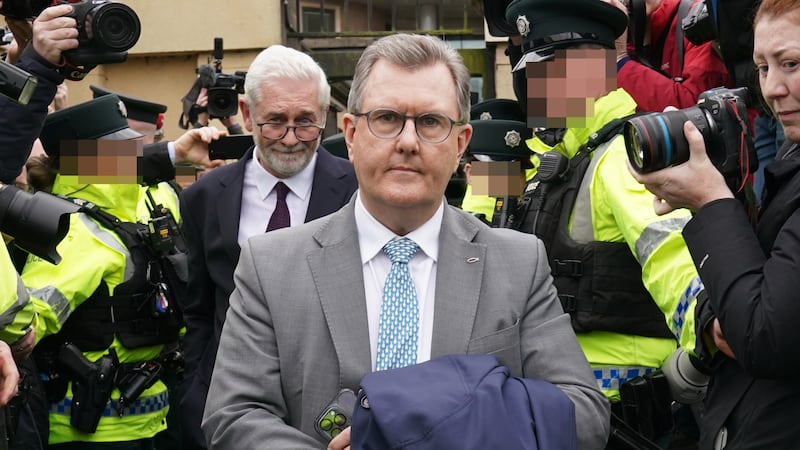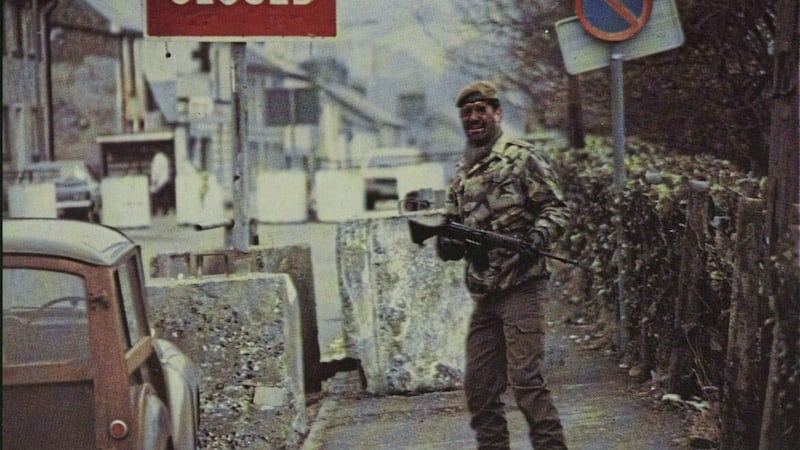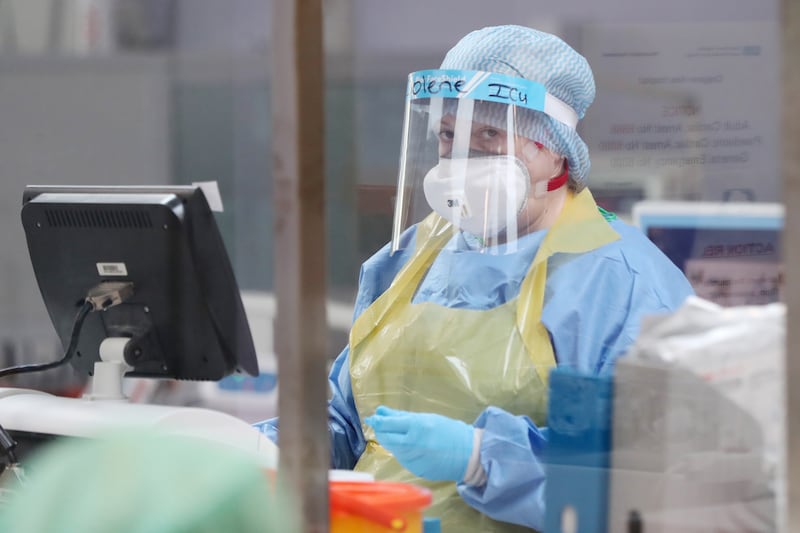WHEN Arlene Foster succeeded Peter Robinson as DUP leader in December 2015, the north was a very different place politically – Stormont was as stable as it had been at any stage since the restoration of devolution, the word 'Brexit' had yet to enter the public's vocabulary, and the initials RHI were known only to a few hundred farmers and those businesses people and civil servants involved with the renewables industry.
While the new DUP leader was a member of the Protestant Church of Ireland and a former Ulster Unionist, the party's direction wasn't expected to differ significantly from what went before.
With the benefit of hindsight it appears naive but the departure of Peter Robinson set an optimistic tone and there was a sense that Stormont would begin to function more effectively.
Following stints at the enterprise department and latterly finance, Mrs Foster brought a reputation for detail and diligence, and was much less tainted than her predecessor by scandal. The most difficult matter on the road ahead at the time was the vexed issue of dealing with the past.
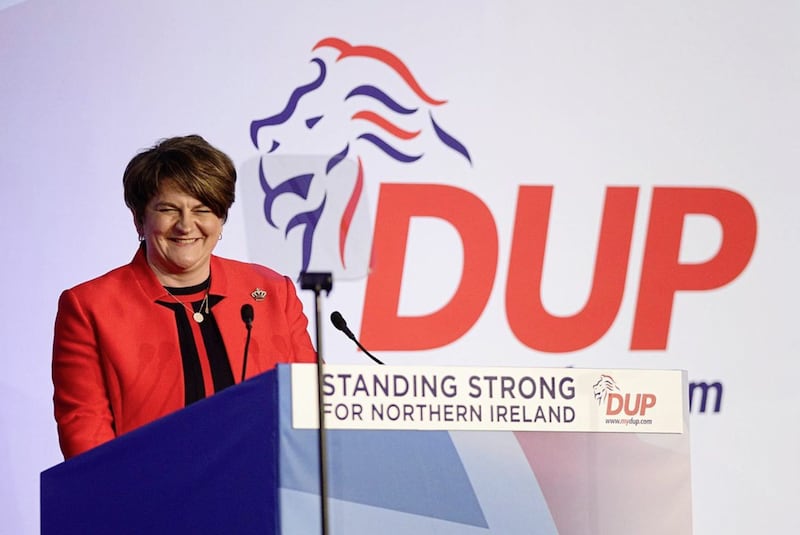
In an interview with The Irish News in January 2016 on the day she became first minister – this newspaper's first sit down with a DUP leader since Peter Robinson made his controversial comments about Muslims some 20 months previous – Mrs Foster signalled that she would be happy to attend a GAA match if invited but ruled out the possibility of commemorating the centenary of the Easter Rising.
The next time The Irish News sat down with the DUP leader was in the following October, five months on from the EU referendum and four months after the audit office had published a report into the Renewable Heat Incentive (RHI), prompting Stormont's Public Accounts Committee to carry out its own investigation into the botched scheme.
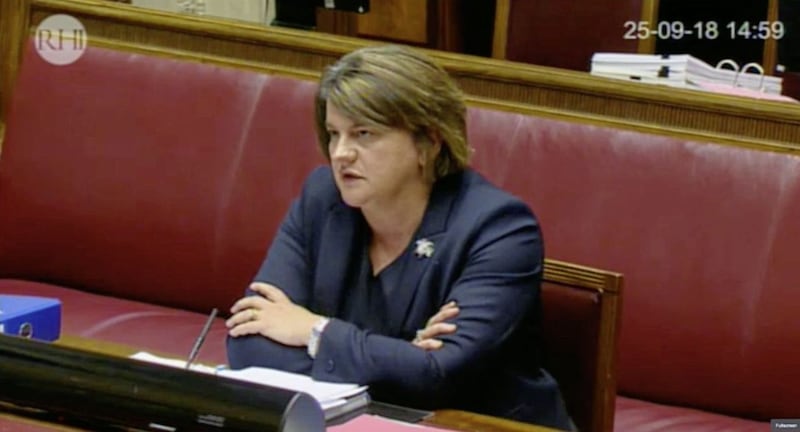
On Brexit, the DUP leader argued that the north's politicians should be positive about leaving the EU because "if you're negative about a place" it will have an impact on investment.
She was supportive of ending ties with Brussels, believing it provided a chance to cut "burdensome regulation".
However, she said Northern Ireland's geography and history made it a special case and she appeared flexible about the how a final settlement might look.
When quizzed about her oversight of RHI as minister for enterprise, Mrs Foster responded by saying the scheme had been "developed by officials in a way that shouldn't have been developed by officials" and that she could not be expected to be across "every single jot and tittle that goes on in every ministerial department".
Two months later, however, the DUP leader was telling the assembly that ministers were answerable not only for their own actions and decisions but for those of civil servants. She described the failure to cap RHI subsidies like the corresponding scheme in Britain as the "deepest political regret" of her time as an MLA.
In the following weeks, after Sinn Féin finance minister Máirtín Ó Muilleoir initiated a public inquiry into the scheme, an ailing Martin McGuinness tendered his resignation as deputy first minister, unilaterally collapsing the institutions.
The period since Stormont was suspended in January last year has been difficult for Mrs Foster. A 'leader without office', she has been sidelined, the DUP's centre of power shifting to Westminster, where its MPs hold the balance of power in the wake of the 2017 snap general election.
While 2017's election proved a high point for her party as the Ulster Unionists were banished from the green benches with the DUP taking 10 of the north's 18 seats, its leader appears to have played a peripheral role, if any, in negotiating the confidence-and-supply deal with the Tories.
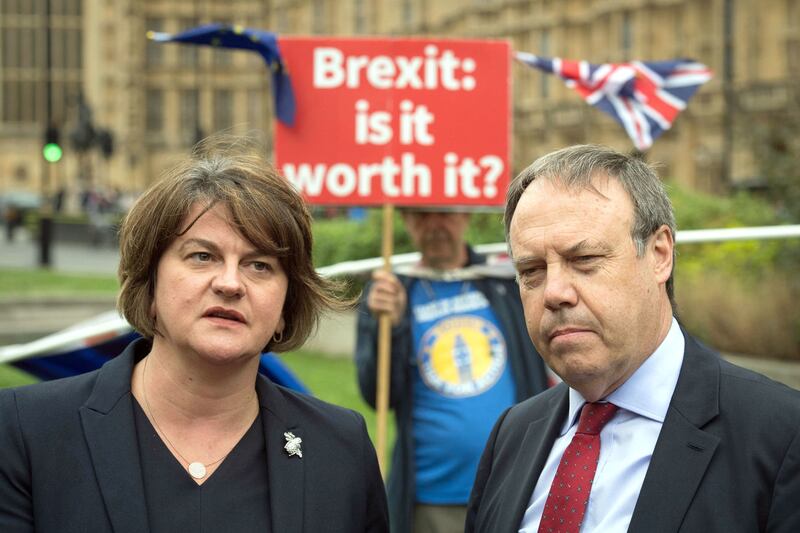
For a party leader, her profile has been relatively low, not helped by a boycott of those journalists and news outlets who led the coverage of the RHI scandal, in which Mrs Foster was the central player.
While her decision not to speak to certain media organisations appears motivated in part by spite, there's also a strong suspicion that party aides advised her to avoid potentially confrontational public exchanges, where she may say something she, or they, regretted.
Echoing the tetchiness that marked many of her predecessor's media appearances, Mrs Foster is prone to adopting a dismissive tone that can prove counter-productive.
Her characterisation of Sinn Féin as a 'hungry crocodile' when responding to a question about an Irish language act at the DUP's spring 2017 assembly election manifesto launch proved a to be a watershed, prompting a huge backlash among nationalists, while sending sales of green dinosaur costumes rocketing.
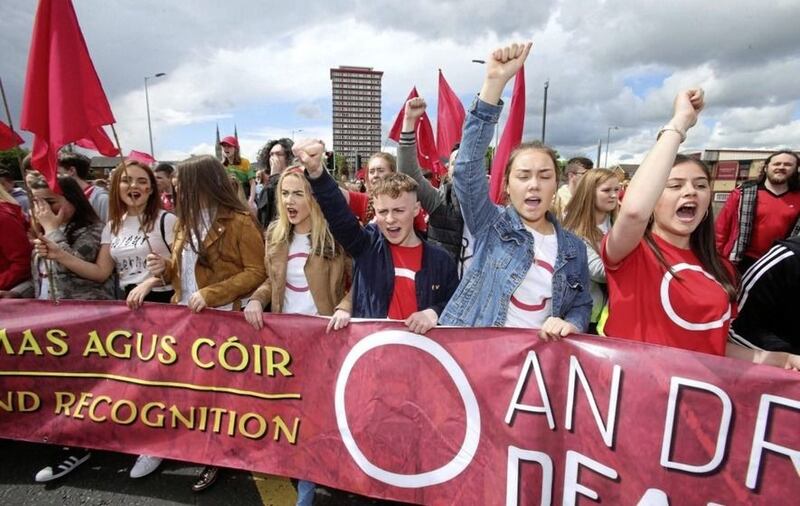
The subsequent Stormont election saw unionism lose its majority in the assembly for the first time, and while the blame for this can't be laid entirely at the DUP leader's door, her crocodile remarks, coupled with her association with the RHI, are believed to have been major factors in nationalism's electoral surge.
In the aftermath of the assembly election, efforts to restore devolution began amid low expectations.
Sinn Féin adopted an acht na Gaeilge as a red line and was reluctant to commit to an executive with Mrs Foster at its head while her oversight of the RHI was being probed by a public inquiry. Republicans were adamant there would be "no return to the status quo".
The RHI inquiry led by Sir Patrick Coghlin launched in spring 2017 and began hearing oral evidence in the autumn. Mrs Foster's first appearance as a witness came in April last year.
The former first minister's evidence quickly debunked the myth that she was a 'safe pair of hands' who was especially judicious in her oversight.
What emerged was a picture of a minister more interested in promoting tourism and taking part in photo-ops, while deferring responsibility for policy detail to her special adviser and department officials.
On countless occasions she was unable to recall key events while in charge of a department that the inquiry chairman witheringly described as "dysfunctional".
The evidence from Andrew Crawford, her one-time special adviser, and other DUP personnel and civil servants has done little to rescue Mrs Foster's reputation, and similarly her second appearance in September.
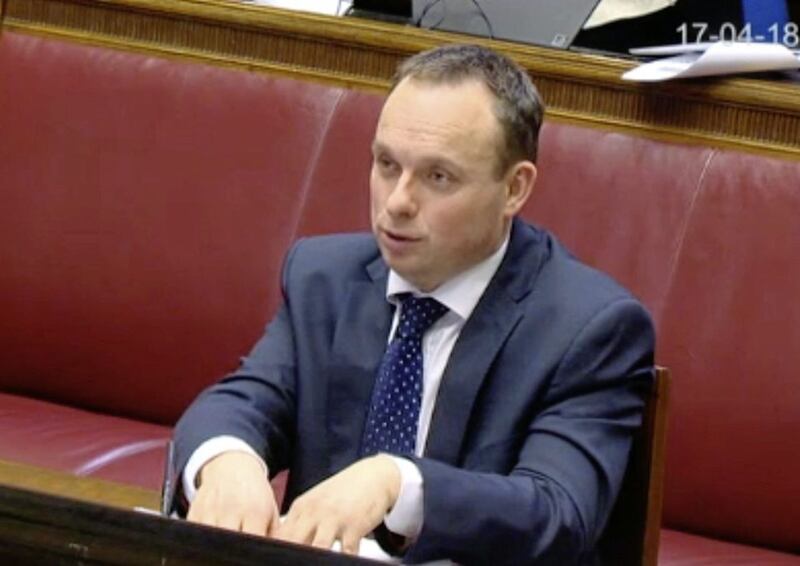
While it would be wrong to pre-empt the inquiry's conclusions, it can safely be assumed that it will not paint Mrs Foster in glowing terms and will likely find her accountable for much of the scheme's failings.
She has already begun her efforts at rehabilitation, using her recent conference speech to apologise for the scandal, though notably without accepting personal responsibility.
After the inquiry publishes its report, it will be for both Stormont's main parties to decide on how the DUP leader's future pans out. Her own colleagues will deliberate over whether she is damaged goods or worthy of continued confidence, while Sinn Féin must decide if it is acceptable to have Mrs Foster as first minister in a restored executive.
We can assume republicans had abandoned their veto on the DUP leader as first minister in February when it appeared Sinn Féin was willing to sign up to a deal that would see the institutions re-established.
But in yet another blow to Mrs Foster's authority and raising further questions about her judgement, her party blocked an agreement widely regarded as good for unionism.
The fall-out from the eleventh hour collapse of the negotiations created bad feeling between Stormont's big two and appears to have put back the restoration of devolution for at least a further 18 months.
Arguably, there is currently little appetite for restoring Stormont. Relations between Peter Robinson and Martin McGuinness were never particularly warm but they were amicable enough to ensure the executive functioned, albeit sluggishly.
Mrs Foster appears to enjoy an at best prickly relationship with Michelle O'Neill, while Brexit, RHI and the megaphone and wrangling over the Irish language have poisoned the political atmosphere.
More than a decade after the DUP and Sinn Féin came together under the terms of the St Andrews Agreement, goodwill between the two parties appears exhausted and the image of power-sharing tarnished.
The outreach agenda that saw her travel to the GAA Ulster football final in June appears to have been parked, August's invite to a reception for Pope Francis in Dublin snubbed without adequate explanation.
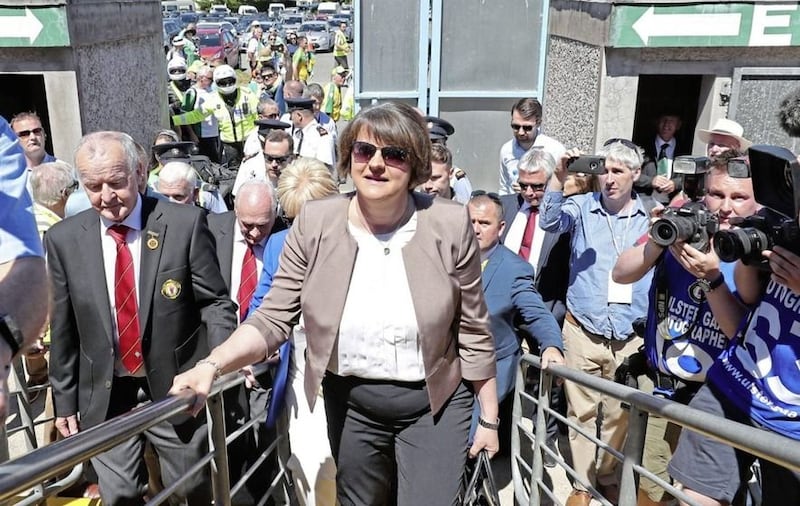
Mrs Foster must in the meantime plough on in what is now a limited role as DUP leader, watching her MPs steal the limelight while she sits on the political equivalent of death row, awaiting Sir Patrick Coghlin's report.
She has responsibility without power and in common with Theresa May appears to be living on borrowed time, sustained to a large degree by the fact that there is nobody waiting enthusiastically in the wings to succeed her.
A once strong relationship between the DUP and its key constituencies of business and farming has been soured by inflexibility on the Brexit backstop, while ‘small u’ unionists have been alienated by the party's uncompromising approach.
The seeds of the present instability were sown before Mrs Foster assumed the DUP leadership – both in her time at the enterprise department and in her party's long-held euroscepticism and aversion to Irish culture.
Rescuing her fortunes under current circumstances will be a challenge but things may yet get worse for the former first minster.
